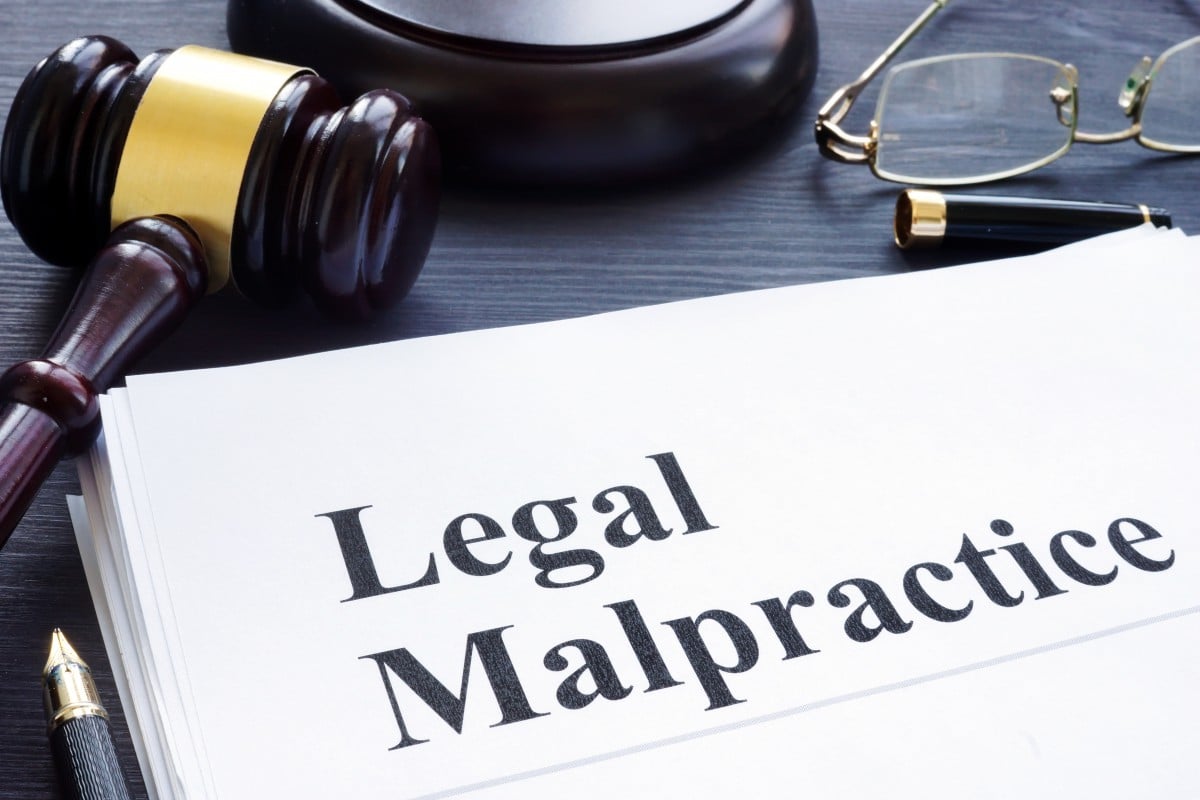In today’s fast-paced commercial environment, navigating the complex terrain of regulations and best practices is essential for any organization. The ability to effectively interpret and apply rules related to promotional activities is critical for businesses aiming to maintain compliance while achieving their strategic objectives. This involves not only knowing what is permissible but also understanding the implications of various legal frameworks that govern public outreach efforts.
As enterprises strive to build robust relationships with their audiences, the necessity of adhering to rules that influence how messages are crafted and delivered becomes increasingly paramount. Professionals tasked with ensuring adherence to these expectations must possess a keen insight into the interplay between creativity and regulatory requirements. This balance is crucial in safeguarding the organization’s reputation and mitigating potential risks associated with miscommunication or non-compliance.
Equipped with the right knowledge, legal professionals can become invaluable partners within their organizations, guiding teams through the intricacies of acceptable practices. This exploration will illuminate key facets of regulatory expectations and offer actionable insights to enhance strategic decision-making in communication efforts.
Understanding Marketing Regulations and Compliance
The landscape of promotional practices is rife with guidelines designed to protect consumers and ensure fair competition. Navigating these requirements is essential for businesses seeking to build trust and maintain a reputable image. It is vital to grasp the various frameworks and stipulations that govern advertising and promotional activities.
Compliance is not merely a legal obligation; it also fosters credibility and helps avoid potential penalties. Companies must be aware of the following key elements:
- Truthfulness: All representations made in promotional materials must be accurate and not misleading.
- Transparency: Clear disclosure of sponsorships, partnerships, or any incentives is crucial for maintaining consumer trust.
- Privacy: Collecting and using customer data should adhere to relevant privacy laws to protect consumer information.
- Fair Competition: Businesses must avoid deceptive advertising practices that could harm competitors or mislead consumers.
Organizations should implement robust practices to ensure compliance:
- Regularly review promotional content for adherence to applicable regulations.
- Train staff on industry standards and legal requirements to promote a culture of compliance.
- Seek legal counsel or compliance experts when developing new marketing strategies.
- Establish a monitoring system to track changes in regulations and update practices accordingly.
Understanding and following these standards not only minimizes legal risks but also enhances corporate reputation and customer loyalty. It is imperative for entities to stay informed and proactive regarding their promotional endeavors.
Key Legal Principles for Marketing Strategies
Understanding the foundational concepts that govern promotional activities is essential for any organization seeking to engage consumers effectively. These principles serve as a framework that helps ensure compliance while also fostering trust and transparency in communication with the public.
| Principle | Description |
|---|---|
| Truthfulness | All claims made in promotional materials must be accurate and not misleading. This principle underpins the credibility of any communication. |
| Fairness | Engaging in practices that do not take advantage of consumers or competitors is essential. Fair dealings build long-term relationships and enhance reputation. |
| Disclosure | Clear and conspicuous disclosure of material information is required to ensure that consumers can make informed choices, especially regarding endorsements and sponsorships. |
| Privacy | Protecting consumer data is paramount. Strategies should comply with regulations surrounding data collection and usage to maintain consumer trust. |
| Intellectual Property | Respecting copyrights, trademarks, and patents in all promotional efforts avoids potential legal disputes and reinforces respect for creative works. |
By adhering to these essential principles, businesses not only mitigate risks but also enhance their overall approach, leading to more successful and ethical interactions with their target audience.
Risks of Non-Compliance in Advertising
Failure to adhere to established standards in promotional activities can expose organizations to a range of dangers. The implications of disregarding these rules extend beyond mere financial penalties, potentially affecting reputation and consumer trust.
Several key threats arise from non-conformity in promotional communications:
- Financial Penalties: Organizations may face significant fines as a consequence of regulatory breaches.
- Legal Proceedings: Non-compliance can lead to lawsuits, either from consumers or competitors, resulting in costly legal battles.
- Reputation Damage: Public perception can suffer considerably, leading to a loss of customer loyalty and brand integrity.
- Operational Disruptions: Investigations by regulatory bodies can divert resources and disrupt normal business operations.
- Loss of Competitive Edge: Companies that fail to comply risk losing market position as they may be barred from certain advertising avenues.
- Increased Scrutiny: Non-compliance can subject an organization to heightened monitoring and oversight, complicating future promotional efforts.
Understanding these risks is essential for entities engaged in promotional practices. Proactive engagement with compliance not only safeguards against repercussions but also fosters a culture of accountability and integrity.
Intellectual Property Considerations in Marketing
In today’s competitive landscape, protecting unique creations and ideas is crucial for businesses. Understanding the nuances of ownership and rights associated with innovative materials can significantly influence strategic decisions and promotional efforts. This segment explores essential elements that should not be overlooked when planning promotional initiatives.
Trademark Protection
Trademarks serve as vital identifiers for products and services. They distinguish offerings from those of competitors and foster brand loyalty among consumers. It is imperative to conduct thorough searches to ensure that chosen marks do not infringe on existing trademarks. Furthermore, registering trademarks offers enhanced legal protections, enabling businesses to defend their brand against unauthorized use effectively.
Copyright and Creative Content
Original works such as advertisements, graphics, and videos fall under copyright protection. Creators must ensure they have the necessary rights to use third-party content in their campaigns. When utilizing someone else’s work, obtaining licenses or permissions is essential to avoid potential legal disputes. Additionally, companies should be mindful of their rights regarding internal creations to safeguard their intellectual property.
Overall, a strategic approach to intellectual assets not only promotes compliance but also fosters a culture of innovation and creativity within organizations.
Data Privacy Laws Affecting Marketing Efforts
The increasing emphasis on personal information protection is reshaping how organizations approach their outreach activities. Compliance with regulatory frameworks has become essential, influencing strategies and methodologies employed in engagement with clients and potential customers. Understanding these regulations is critical for maintaining trust and avoiding significant penalties while ensuring effective communication with target audiences.
Key Regulations Influencing Practices
| Regulation | Region | Key Provisions |
|---|---|---|
| General Data Protection Regulation (GDPR) | European Union | Restricts data processing; requires consent; mandates data subject rights. |
| California Consumer Privacy Act (CCPA) | California, USA | Gives consumers control over personal information; mandates clear disclosures. |
| Personal Information Protection and Electronic Documents Act (PIPEDA) | Canada | Regulates data collection; requires consent; emphasizes transparency. |
Implications for Business Strategies
Organizations must adapt their approaches to data capture and usage to align with these standards. This adjustment often involves revising consent mechanisms, enhancing transparency about data utilization, and implementing stringent security measures. By fostering a culture of compliance and integrating these practices into organizational frameworks, businesses can create a resilient structure that not only meets legal requirements but also promotes ethical engagement with clients.
Trends and Future of Marketing Legislation
The landscape of regulations surrounding promotional activities is evolving rapidly, influenced by technology, consumer behavior, and global standards. Legal frameworks are adapting to encompass new forms of communication and emerging platforms, leading to a more nuanced approach to compliance and consumer rights. Understanding these trends is essential for organizations looking to navigate the complexities of this dynamic environment.
Current Trends Influencing Regulation
- Increased Digital Oversight: With the rise of online advertising, regulatory bodies are focusing on digital platforms, ensuring transparency and accountability.
- Consumer Privacy Protections: The demand for stronger privacy measures has prompted organizations to implement stringent data protection practices.
- Sustainability Initiatives: A growing emphasis on environmentally responsible practices is influencing legal requirements and promotional strategies.
- Influencer Accountability: As influencers gain traction, guidelines are being established to ensure clear disclosures about endorsements and sponsored content.

Predictions for Future Developments
- Global Harmonization: As businesses operate across borders, there will be increased efforts to align regulations internationally, simplifying compliance for multinational entities.
- AI and Automation Impact: The integration of artificial intelligence in marketing practices will lead to new legislative measures addressing ethical considerations and consumer rights.
- Enhanced Enforcement Mechanisms: Authorities may adopt more robust enforcement strategies, including heavier penalties for non-compliance, aiming to ensure adherence to regulations.
- Consumer Empowerment: As consumers become more informed and vocal, we may see a shift toward greater rights and protections, promoting transparency and accountability in advertising.
Q&A: Marketing law overview for in house counsel
What are the main legal considerations for in-house counsel when developing marketing strategies?
In-house counsel must be aware of several legal considerations when developing marketing strategies. These include compliance with advertising laws, such as the Federal Trade Commission (FTC) guidelines, which prohibit misleading advertisements and require clear disclosures. Counsel should also consider intellectual property concerns, including trademark protection for logos and slogans, copyright for creative content, and compliance with data privacy laws regarding customer information. Additionally, there may be industry-specific regulations to follow depending on the sector, such as healthcare or finance. Overall, a thorough understanding of these legal frameworks is essential to mitigate risks and ensure a compliant marketing approach.
How can in-house counsel ensure compliance with digital marketing laws?
To ensure compliance with digital marketing laws, in-house counsel should first review applicable regulations such as the CAN-SPAM Act, the General Data Protection Regulation (GDPR), and the California Consumer Privacy Act (CCPA). Implementing a robust consent management framework for email marketing and ensuring that data collection practices are transparent and lawful are critical steps. Counsel should also train marketing teams on best practices for digital advertising, including proper disclosures for sponsored content and influencer partnerships. Regular audits and updates to digital marketing policies, along with monitoring campaign effectiveness against legal requirements, can also help maintain compliance in this rapidly evolving landscape.
What role does in-house counsel play in advertising claims and substantiation?
In-house counsel play a pivotal role in ensuring that advertising claims are credible and substantiated. This involves reviewing marketing materials for accuracy and ensuring that any claims made about products or services can be backed by evidence. Counsel should collaborate with marketing teams to understand the evidence supporting claims, which may involve gathering research data, testimonials, or expert opinions. Furthermore, in-house counsel must advise on the potential legal implications of making certain claims, helping the company avoid litigation and reputational harm. By actively participating in the advertising review process, in-house counsel help ensure that marketing communications are not only persuasive but also compliant with the law.
What should in-house counsel know about social media marketing regulations?
In-house counsel should be well-versed in the specific regulations governing social media marketing, as this area is subject to a variety of legal standards. Key considerations include understanding the FTC’s guidelines on endorsements and testimonials, which require transparency when influencers receive compensation for promoting products. Counsel should also be aware of copyright issues related to user-generated content and the importance of terms of service for social media platforms. Additionally, data privacy laws impact how marketers can collect and use consumer data on social media. By staying informed about these regulations, in-house counsel can help manage risks and ensure that social media campaigns are both effective and compliant.
How can in-house counsel stay updated on changes in marketing law?
Staying updated on changes in marketing law is crucial for in-house counsel to provide accurate advice. This can be achieved through a combination of continuous education and monitoring industry developments. Counsel should subscribe to legal newsletters, join associations like the American Bar Association or the Association of Corporate Counsel, and attend relevant conferences and webinars. Networking with other legal professionals in the field can also provide valuable insights. Moreover, utilizing legal research tools and following regulatory agencies’ updates will help in-house counsel keep abreast of any significant changes in marketing regulations. Active participation in professional forums and discussions can further enhance knowledge and foresight regarding upcoming legal trends impacting marketing practices.
How can law firms use digital marketing strategies to bring in new clients?
Law firms can leverage digital marketing strategies, such as content marketing, search engine optimization (SEO), and social media, to attract new clients. A law firm’s website should be optimized for search engines, ensuring it ranks well for legal services queries. In addition, law firms can use email marketing campaigns to nurture relationships with potential clients, and implement targeted advertising campaigns on platforms like Google and LinkedIn to bring in new clients.
What role does a law firm marketing agency play in promoting legal services?
A law firm marketing agency helps law firms develop and execute a comprehensive law firm marketing plan. These agencies specialize in law firm SEO strategies, content marketing, and digital marketing efforts to ensure a law firm’s website ranks high in search engines and engages potential clients. They also manage marketing compliance to ensure that the firm’s marketing and advertising tactics adhere to the rules regarding the advertising of legal services.
What are the benefits of content marketing for law firms?
Content marketing is a powerful marketing tool for law firms, allowing them to showcase their expertise and engage with prospective clients. By creating informative blog posts, case studies, and legal guides, law firms can demonstrate their knowledge of legal issues and attract potential clients searching for solutions. This approach also enhances a law firm’s SEO strategy, driving organic traffic to their website.
Why is marketing compliance essential for law firms?
Marketing compliance is essential for law firms because it ensures that all marketing campaigns and advertising practices follow the relevant laws and regulations. For example, the FTC enforces truth-in-advertising laws, and law firms must ensure their marketing messages are truthful and not misleading. A compliant marketing strategy helps law firms avoid legal disputes, maintain their reputation, and protect their marketing budget from potential fines or penalties.
How can law firms use traditional and digital marketing channels effectively?
Law firms can balance traditional marketing channels, like print advertising and networking events, with digital marketing tactics to reach a broader audience. Traditional marketing helps build credibility and relationships, while digital marketing, such as social media and email marketing, enables law firms to reach potential clients online. Combining both approaches ensures a well-rounded law firm marketing plan that caters to different client preferences.



